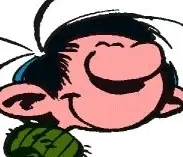
Die Abenteuer des Prinzen Achmed is a fairytale film by Lotte Reiniger. It is the oldest surviving animated feature film. The movie features a silhouette animation technique Reiniger invented that involved manipulated cutouts made from cardboard and thin sheets of lead, under a camera.
Here is what the thumbnail looks like animated.
The technique she used for the camera is similar to Wayang shadow puppets, though hers were animated frame by frame (at 24fps), not manipulated in live action. The original prints featured color tinting. Reiniger also used the first form of a multiplane camera in making the film, one of the most important devices in pre-digital animation. Work began in 1923, and the film was finished in 1926. –WP & Johnny
Here’s a little trailer of short sequences:
https://www.youtube.com/watch?v=G_9L7r8NIBc
Having watched a bunch of early Fleischer, Disney and other cartoons, I was impressed by how unique this style is. While the movement is fairly simple (even crude at times), I found it refreshing how things moved independently of each other instead of being ‘synced up and bouncing together’ as with all those Disney & Fleischer shorts. Also, the silhouette animation style, while allowing very limited character detail, was somehow surprisingly modern in aesthetic IMO.
>>>HERE<<< is the whole 65 minute film, remastered in 4k and with a great, classical soundtrack. You’ll get a much better taste of things than via the trailer, altho I don’t blame you if you let it run in the background while you check your portable.
The story itself is based on elements from One Thousand and One Nights written by Hanna Diyab, including Aladdin, The Story of Prince Ahmed & the Fairy Perī-Bānū, and The Ebony Horse.
Impressive! The technique seems inspired by traditional Wayang-Kulit theater from Indonesia / Java.
Haha, was that a martial arts version of Punch & Judy, Aliens-style?
I’ve seen some Chinese versions, but that one was quite a bit different!
Greate visuals and effekts. All hand craftet
how long does one have to be for it to be classed as ‘feature length’?
i certainly know of earlier animated films.
Good question!
There’s a lot to unpack across these two links: [short films] and [feature films], but skimming through quickly, it seems like there’s two main points:
-
In terms of running length, it seems that the total number of 35mm reels (2-4 I think?) and total film length (35 - 40min it seems) tended to suggest a “short,” while longer films could be said to be “feature-length.”
-
A completely different definition for “feature film” was based on it being the advertised lead film on the marquee. So I guess it’s possible that a film could be both a short and a feature film at the same time(!) Note: in that era, no matter how long the feature-film ran, I believe it was typically accompanied by a short, including cartoons and newsreels.
Anyone feel free to take a deeper dive and correct any of that, please!
Btw-- what films were you thinking of…?
interesting, i guess it makes sense that the title of ‘feature’ truly is for the ‘big picture’ at the venue.
i was thinking of several early silent filmmakers, I’m sure none of which actually made an animated film any longer than 15-20 minutes.
specifically; otto mesmer, winsor mccay, emile reynaud, and emile cohl
otto mesmer, winsor mccay, emile reynaud, and emile cohl
Wait… you mean Franz Mesmer or Otto Messmer?
Those are some totally different people!Anyway, I’ve seen some of the McCay stuff-- so genius!
(but who are Reynaud (literally “fox”) and Cohl?)
-



